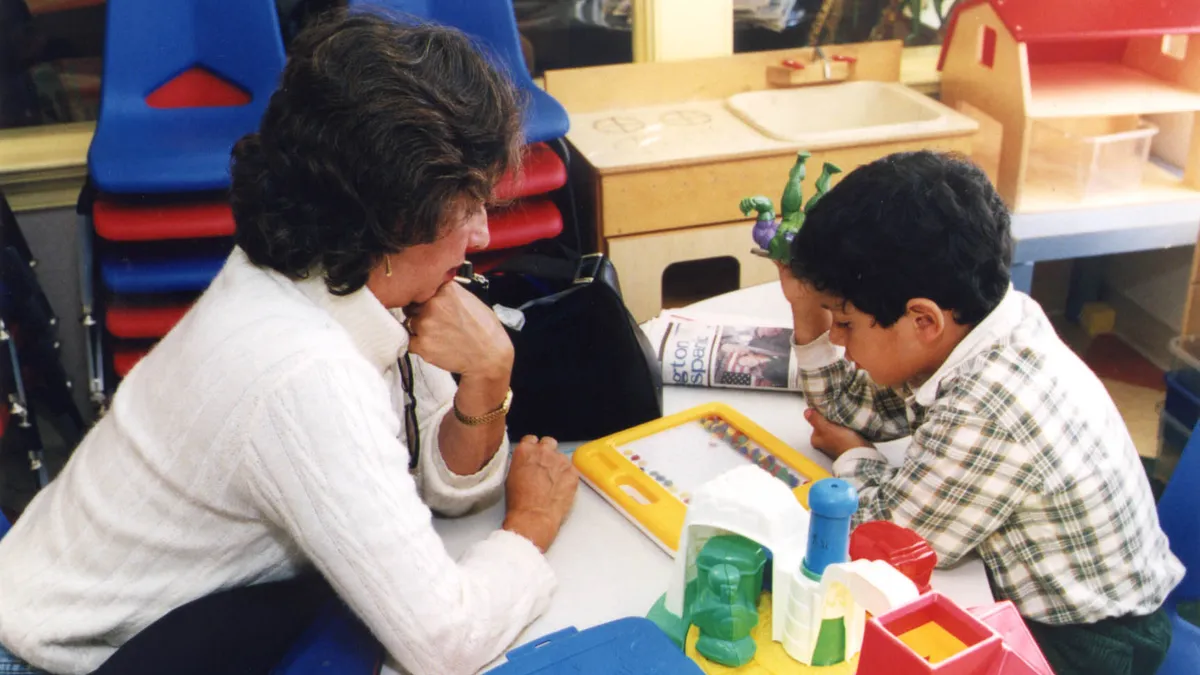Dive Brief:
- Because of the complexity of special education law and the need to deal with parents of exceptional children, effective leadership of special education programs in schools requires principals to be “one-part lawyer, one-part counselor—and a little bit fearless,” Education Week reports.
- Most school principals get little training or direct experience with special education during their credentialing course work, and the entire Individuals with Disabilities Education Act (IDEA) is too large for most principals to have the time to read. However, principals should:
- become familiar with the procedural safeguards section of IDEA, which summarizes a school's legal obligations
- help manage the flow of special education students attending traditional classes for certain courses
- gain a sound understanding of the best ways to discipline students in these classes
- support special education teachers in their role
- Principals also need to build relationships with the parents of special education students and familiarize themselves with students' individual needs and abilities before signing IEPs, as parents are more likely to be understanding of situations where mistakes or oversights may occur if they trust that principals to have their child’s best interest at heart.
Dive Insight:
Special education is an important part of public education. According to the National Center for Education Statistics, 95% of students with disabilities and special needs attend public schools. Nationally, special education students make up 13% of the public school population.
Principals play an important role in the lives of these students. Unfortunately, many often don't have a strong background in this highly-specialized area of education, and it becomes one of the biggest struggles they face. In order to serve these students effectively without ignoring the needs of others at school, principals need to have a basic understanding of their role in the process. Principals must also develop strong collaborative relationships with special education administrators and teachers. In this way, they can be kept abreast of the current issues, keep a good working relationship with special education teachers, and help these teachers, who are highly sought after in the education market, feel supported and included in school affairs.
Principals must also have a strong understanding of their role in the IEP process. Though they tend to rely heavily on the advice of teachers and paraprofessionals in this area, they bear a responsibility if problems occur in the process. In larger schools, principals may be able to delegate this responsibility to someone who can better focus on the issue. However, in smaller schools, principals need to take part in these meetings.
Principals also need to look at social-emotional learning programs at their schools. These programs can benefit the entire school, as it helps special needs students learn how to better control their emotions and also teaches students not in this situation to have more empathy and understanding for their special education classmates.







 Dive Awards
Dive Awards




